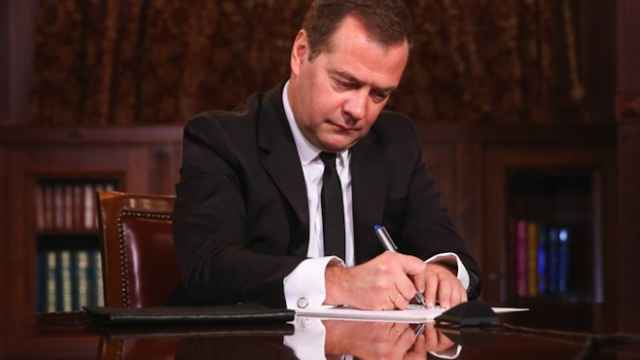U.S. energy major Chevron plans to withdraw from a $10 billion shale gas deal with Kiev, a senior Ukrainian presidential official said Monday.
Ukraine signed a shale gas production-sharing agreement with Chevron amid great fanfare in November 2013, just months before mass protests in Kiev ousted former President Viktor Yanukovych, plunging the country into a major crisis with Russia.
"There is information that they [Chevron] are planning this decision," Valeriy Chaliy told journalists, referring to a report by local media that Chevron had told the government it was pulling out of the deal.
Chaliy declined to give further details.
Local media said a move by the first post-Yanukovych government to increase taxes for energy companies lay at the root of Chevron's decision.
Chevron in Kiev refused to comment on the report. A London-based spokesperson for Chevron said: "We have just delivered to the Ukrainian government our response. Therefore it is premature for us to comment."
The agreement had been designed to unfold slowly over 50 years, with an initial investment by Chevron in the first two or three years of $350 million for exploration work.
The deal to develop the Olesska field in western Ukraine followed a similar shale gas agreement with Royal Dutch Shell — both keystone projects for Ukraine's bid to lessen its energy dependence on Russia with whom it is embroiled in a dispute over gas prices and unpaid debts.
The Shell deal could also be under threat as the gas deposit intended for development is close to the eastern territories now controlled by pro-Russian separatists.
Earlier this year, Chevron said the firm was still interested in the Ukrainian shale gas project, but since then the situation in eastern Ukraine has deteriorated, claiming more than 4,700 lives.
A Message from The Moscow Times:
Dear readers,
We are facing unprecedented challenges. Russia's Prosecutor General's Office has designated The Moscow Times as an "undesirable" organization, criminalizing our work and putting our staff at risk of prosecution. This follows our earlier unjust labeling as a "foreign agent."
These actions are direct attempts to silence independent journalism in Russia. The authorities claim our work "discredits the decisions of the Russian leadership." We see things differently: we strive to provide accurate, unbiased reporting on Russia.
We, the journalists of The Moscow Times, refuse to be silenced. But to continue our work, we need your help.
Your support, no matter how small, makes a world of difference. If you can, please support us monthly starting from just $2. It's quick to set up, and every contribution makes a significant impact.
By supporting The Moscow Times, you're defending open, independent journalism in the face of repression. Thank you for standing with us.
Remind me later.





